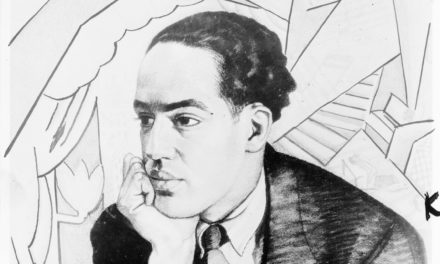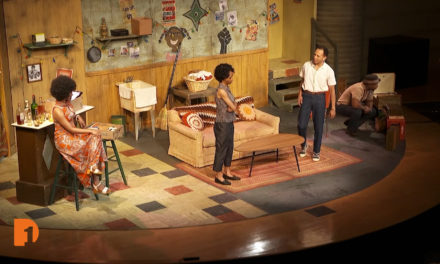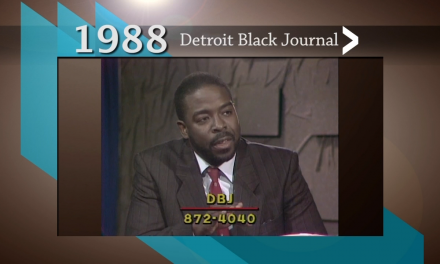Biking: it’s more than just exercise. It’s equitable transportation, entertainment and a way for people to be introduced to Detroit and what the city has to offer. That’s the motto that motivates biking advocate Jason Hall, the founder of RiDetroit, the co-founder and former president of Slow Roll Detroit, and the owner and operator of Trek Bicycle Midtown Detroit.
Hall opened RiDetroit, an ebike tour company, in 2018 to tap into the potential of electric bikes. Around the same time, Hall was building a community of cyclists every Monday in Detroit through Slow Roll Detroit. The Slow Roll idea has since expanded to other cities across the nation after Hall and company were featured in a SuperBowl commercial.
During the pandemic, Hall opened Electric Avenue Bikes, Detroit’s first only-ebike shop. In 2022, Hall partnered with Trek Bicycles, converting Electric Avenue Bikes to Trek Bicycle Midtown Detroit, bringing the global bicycle retailer to the Motor City.
As Hall has heightened the popularity of biking around Detroit and across the nation, what has been biking’s influence on downtown Detroit? How can biking play a role in Detroit’s post-pandemic recovery? One Detroit contributor Stephen Henderson, host of “American Black Journal,” talks with Hall about the importance of having a high-end bike shop in Detroit, and the benefits of biking— the economic benefits for the city, the health benefits for the rider and the environmental benefits for our climate.
Full Transcript:
Stephen Henderson, Host of American Black Journal: Jason Hall, great to see you here at The Detroit Policy Conference.
Jason Hall, Founder, RiDetroit: What is happening, brother?
Stephen Henderson: I mean, we go back so far. Years and years and years. But let’s start with the way that I really know you, which is through biking and all the things that you’ve done around biking in the city of Detroit. We’re here at the Policy Conference where we’re here talking about downtown Detroit.
I feel like two things are true. Biking has really changed Downtown Detroit and Midtown. And Midtown and Downtown have really changed biking in Detroit. But I’m really curious, as somebody who really kicked off the interest in biking in Detroit, how do you see that?
Jason Hall: For once, I can’t give myself the props on this one. I’d like to say I had a little bit to do with it, but I think what really changed biking downtown in Midtown was the bike share. You know, MoGo. The introduction of that. I’ll be honest, when they rolled it out, I’m saying, who’s going to use these? But then all of a sudden you see entire things empty, and you see everybody out on bikes downtown. So, I mean, yeah, Slow Roll might have played into that.
Stephen Henderson: I was going to say, is there someone else that I don’t know, who had thousands of people biking at the same time?
Jason Hall: That might have played a little into it, but I’m going to give it to MoGo on this one. I think them really examining where those kiosks needed to go and putting them in the right places really changed the footprint of downtown.
Stephen Henderson: And all of these things work together. Slow Roll, your event, really got people, not just interested in biking, but interested in the city. I remember the number of people who would come from all over the place on Monday night to bike through Detroit. It wasn’t just about bikes, right? And MoGo, too. It’s about transportation, it’s about entertainment, it’s about the way that the city is kind of changing to welcome people who didn’t feel a part of it before.
Jason Hall: Absolutely. The introduction of that ride really broke down a lot of barriers for people. The fear barrier, all that stuff. When you’re in numbers like that, everybody feels welcome. I think that just gave people a different outlook on what the city is.
Trust me, I do tours nowadays and a lot of people come here, and they have this perception that they’ve always had. But when you get out on a bike and you see everything, you really get to connect with the community. And downtown is a community. Even though people don’t think about it necessarily as a neighborhood, it is a community within itself. And I think it needs bicycling. Absolutely.
Stephen Henderson: So when we think about downtown coming back after the pandemic, lots of people are worried about, not the nightlife part of it, but the daytime part of it. Transportation is a big part of it, right? Like, how people get from one place to the other. Do you see biking playing a different role in this Detroit than in the pre-pandemic Detroit?
Jason Hall: Yeah. Do you know what I mean? Now it’s a different ballgame. The pandemic… Once the governor said, everybody, get out and ride a bike, everybody got out and rode a bike. Well, now all those bikes are somewhere. And it’s my job to not sell them the bike, but now get them on it. So that’s how my role has really changed before.
With Slow Roll even, it was getting people on the bike, getting people out. Like I said, now they know about bikes. Now I have to remind them about the experience and give them different experiences. Downtown riding is completely different than riding in Rouge Park on the bike trails. And so that’s my job. And I embrace that. I love being a part of the educational process and learning about bikes and now let’s learn how it can change your life.
Stephen Henderson: So you have transitioned to a really different role in terms of biking. Part of what you’re talking about there. Tell us what you’re up to though and how that fits in the frame and downtown.
Jason Hall: It’s funny. When I first wanted to open a bike shop, the first thing I said is Detroit needs a Trek-type store. And what I mean by that is we had a lot of bike shops that sold used bikes and sold inexpensive bikes. But we needed a place that sold a top quality, and I hate to say expensive, but a pricier bike. We needed that. And so years ago I said that. Lo and behold, years later, we opened this bike shop in Detroit called The Electric Avenue Bikes, and we specialized in electric bikes. And then Trek buys us. So a month ago, Trek acquired us.
So it’s almost like a weird dream come true because opening a bike shop, you have ideas, but you’re hindered by budget. Now I work with Trek, which is the best bike maker in the world. And I have access to budgets and marketing that I never would have had access to. So, I always joke if somebody came to me in the old days and said, can I have $1,000? I would’ve said, are you crazy? But now I can say, well, you know what, there’s a grant that I can maybe help you get that money. And so I am very excited about Electric Avenue bikes being acquired by Trek and us having an official Trek store in Detroit.
Stephen Henderson: So for viewers who are not familiar, tell us about the e-bikes. Electric bike. What is that and why is that another step forward in the innovation of getting more people on the bike?
Jason Hall: Absolutely. So the electric bike is an electric pedal assist bike. Exactly how it sounds. There’s a couple of different kinds. There’s a kind that does have a throttle, but we don’t deal with that because we want people to ride the bike. So when you introduce assistance to someone, they’re not aware of what that is. And what that is just a little bit of extra boost that you can add to your ride.
Now, it sounds very simple, but imagine you’re a seventy-year-old person, you haven’t written a bike in 20 years, and you’re intimidated by getting back on that bike because you know you might not have the power to make that move. Well, now you’ve got assistance. So now I can break down that barrier of fear and I can say, let’s get on the bike and see. I’ve seen 70, 80-year-old people get on bikes and a week later call me and say, I just did my first 20 miles that I’ve done in 20 years. That’s what the electric bike does. It opens the door for people to come back.
And it also opens the door for new experiences. What we tell people is that you can go further, faster. So you can imagine… When I tell people I ride 100 miles a day, they look at me like I’m crazy. I do everything on my electric bike. It has replaced my car.
Stephen Henderson: That’s the thing, right? Does it feed into the energy we depend on? All these other things. It’s about conservation and all of those things in addition to training.
Jason Hall: Absolutely. I tell people all the time, we’re not trying to replace your bike. We’re trying to replace your car. If all those trips that you take that are a mile, five miles, you should not be starting a car. If we can get you on a bike and show you once you get an e-bike, how easy it is.
And we talked about cargo bikes. I can throw everything in a cargo bike now. My groceries, everything. Now, I’m not paying the ridiculous gas prices. I get to call my insurance company and say I don’t really even drive the car. So we’re talking about financial, but then we’re also going to talk about how I used to weigh 240 pounds and I’m down to 185. So there’s too many benefits to not be involved in this movement.
Stephen Henderson: Alright, Jason, great to see you. Great to see you doing great things for the city of Detroit.
Jason Hall: It is amazing. You’re talking about me. Every time I turn on the radio, I’m like that’s my neighbor right there. I love it, brother. I love it.
Stephen Henderson: Thanks for being here.
Jason Hall: No problem.
Stay Connected:
Subscribe to One Detroit’s YouTube Channel & Don’t miss One Detroit Mondays and Thursdays at 7:30 p.m. on Detroit Public TV, WTVS-Channel 56.
Catch the daily conversations on our website, Facebook, Twitter @DPTVOneDetroit, and Instagram @One.Detroit
View Past Episodes >
Watch One Detroit every Monday and Thursday at 7:30 p.m. ET on Detroit Public TV on Detroit Public TV, WTVS-Channel 56.




